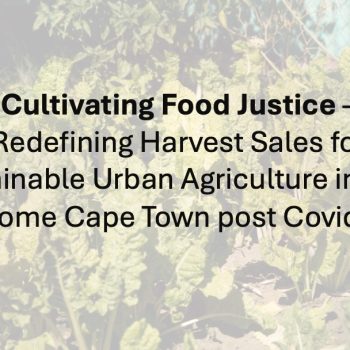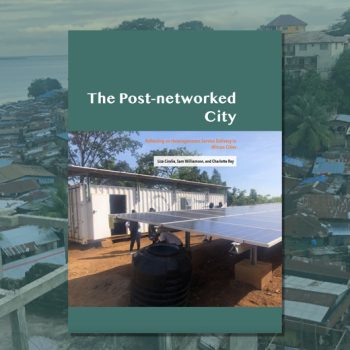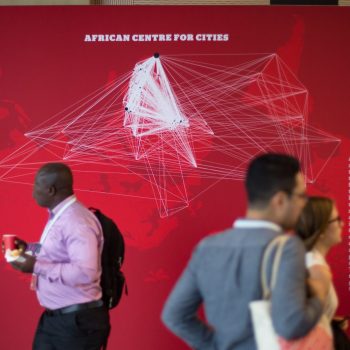Urban planning education and informality
Built environment professionals (engineers, planners, urban designers, architects) play a critical role in shaping the environment in which informal workers live and work. Informality in general, and the informal economy in particular, seldom feature in graduate training for these professionals, despite the numerous contexts in which informal work is the dominant form of work in cities. Informality is an area of urban infrastructure, design and management that presents both challenges and possibilities in planning. WIEGO focusses on addressing urban planning curriculum reform, in light of the role that the informal economy has, under the project banner of Inclusive Cities.
Professor Vanessa Watson, head of the Planning Department at the University of Cape Town, and an active member both of the Global Planning Education Association Network and the African Association of Planning Schools, drafted a research paper outlining trends in planning education and networking among planning educators, in part with a view to identifying how to influence planning education.
Collaboration with the African Association of Planning Schools (AAPS)
WIEGO has signed a memorandum of understanding with AAPS. Both parties are committed to collaborating on initiatives, plans and policies which encourage pro-poor and inclusive cities and towns in Africa.
Informal Economy Educational Toolkit
A key focus of AAPS is revitalising planning education on the continent. AAPS has developed a series of course outlines and toolkits, which planning schools may use free of charge to help with their curricular development processes. WIEGO Urban Policies staff contributed a toolkit on the informal economy for this process, which is designed for post graduates through a nine session seminar programme. Through the readings, course exercises and assignments provided, the toolkit aims to equip students with the conceptual and practical tools to respond creatively to the complex issues associated with urban informal economies.
Material includes:
Self Employed Women’s Association (SEWA) in India Case Study
Informal Economy Sector Livelihood Profiles
Planning literature review
An annotated bibliography of planning and informality literature was compiled by AAPS General Secretary and ACC researcher, James Duminy. The review constitutes an assessment on the extent to which informality is understood and researched in the planning discipline, and also aims to assist planning academics and students who are interested in conducting research in this area.
Collaboration with the Indian Institute of Human Settlements (IIHS)
IIHS is India’s first inter-disciplinary National University for Research and Innovation that focuses on urban development and transformation. WIEGO has collaborated with IIHS in its curriculum development.


